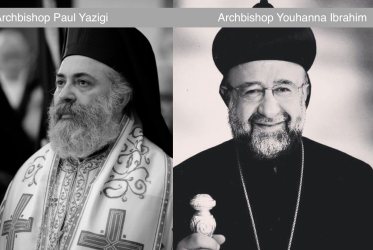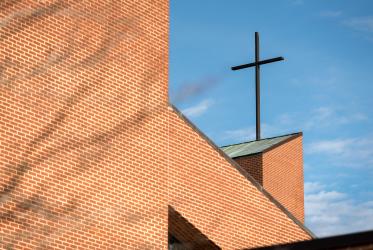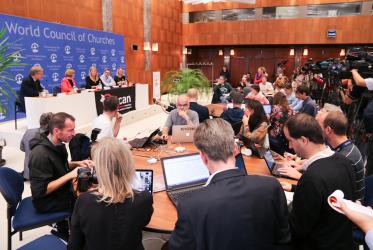Displaying 1 - 18 of 18
WCC renews call for release of archbishops of Aleppo
28 February 2022
In Lebanon, refugees face hardship - but find hope
16 March 2017
WCC gravely concerned over Israel’s travel ban
09 March 2017
‘No Christmas bells in Mosul’ for a third year, says Assyrian priest
14 December 2016
Fleeing from – rather than to – a place
10 February 2016
WCC urges responsibility for and support to the refugees in Europe
04 September 2015







